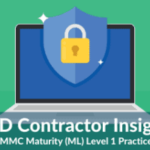By Christopher Moschella, CPA, CISA, Risk Advisory Services Senior Manager

Internal Control/Business Process Review for Medical Practices
For many medical practices, it can be a struggle to reconcile their EMR system receipts with their general ledger receipts. As medical practices look to streamline processes and add automation, it can make the reconciliation process even more complex. In many cases, practices have numerous sources for receiving patient encounter and payment information, which can include:
- Payments received at the clinical offices (cash, check, or credit card),
- Payments received at the administrative office (cash, check, or credit card),
- Payments received at the bank (lockbox checks or ACHs),
- Electronic Remittance Advices (ERAs) that can be downloaded into the EMR and applied to a patient account,
- Explanation of Benefits (EOBs) that can be downloaded from a payor’s website, and
- Paper EOBs.
In addition to multiple sources of data, practices must contend with timing differences between the receipt of the EOB/ERAs and receipt of the payments in their bank account. To make things even more confusing, payors might pay a different amount than what was expected, or net payment amounts with refunds and credits. These payment differences often result in the remittance being recorded to “unassigned” within the EMR system until it can be researched and resolved. All these complexities make it difficult for a practice to reconcile the EMR system receipts (revenues) with the general ledger revenues.
Excel Spreadsheet Reconciliation Pitfalls
To assist with the reconciliation process, we have seen many practices use Excel spreadsheets that attempt to reconcile the EMR to the general ledger on a receipt by receipt basis. The most successful practices perform this reconciliation process daily. As you can imagine, this can be an extremely time-consuming process with the result still being numerous unreconciled differences that must be researched. With it being so time consuming, practices often assign multiple individuals with specific parts of the reconciliation that require access to the spreadsheet, which can increase the risk of data being accidentally deleted or modified.
Medical Practice Remote Work Challenges
If that is not enough, many practices have now gone to some form of a remote work environment, which could be resulting in segregation of duties issues because of changes to employees’ responsibilities. For example, only certain employees may be going into the office certain days, which results in different employees having access to and responsibility for depositing checks received. These new duties which were not originally part of their responsibilities could create segregation of duties concerns.
Internal Control/Business Process Review Solution
So, what is a practice to do to fix these concerns? One solution that many practices turn to is an Internal Control/Business Process Review. These reviews will:
-
Identify internal control gaps
Does the practice have missing or poorly designed controls or segregation of duties concerns?
-
Identify inefficient or unneeded processes
Does the practice still have paper intensive processes? Has the practice’s organization structure or systems changed but its processes have stayed the same?
-
Identify opportunities to reduce manual processes and replace with better utilization of systems and automation
Does the practice use excel spreadsheets rather than system generated reports to create month end reports and financial statements? Has the practice explored the use of bots to assist with its reconciliation process?
-
Benchmark company processes against industry best practices
How does the practice’s structure, staffing, and processes compare to other similar practices?
Based on the results of the above analysis, the practice will receive recommendations to remediate internal control gaps, improve process efficiencies, adjust organization structure, and better utilize systems and automation.
Is your medical practice struggling with its reconciliation process? Are you concerned that controls might not be adequate or processes inefficient? Maybe it’s time to perform an internal control/business process review? Want to learn more? Contact Keiter’s Risk Advisory Services team | 804.747.0000. We are here to help.
About the Author
The information contained within this article is provided for informational purposes only and is current as of the date published. Online readers are advised not to act upon this information without seeking the service of a professional accountant, as this article is not a substitute for obtaining accounting, tax, or financial advice from a professional accountant.


